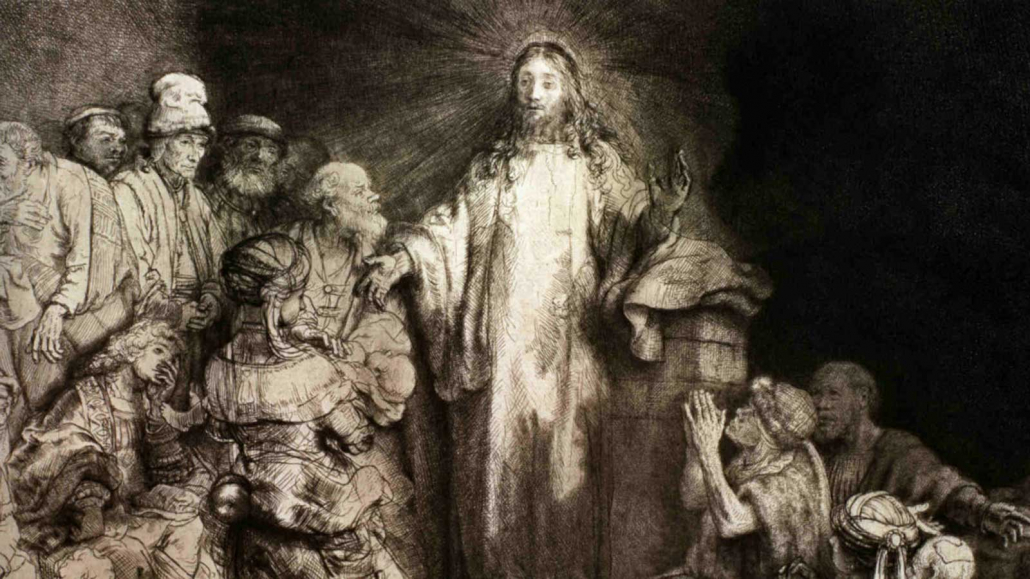Image: Jesus Christ as drawn by Rembrandt (Getty).
‘What does God want?’
Melinda Kearns
Epiphany 4, Year A
Micah 6:1-8; Matthew 5:1-12
It is human nature to want guidance, to want a path to follow and to know the future. What does God want? And how do we know?
Happy New Year everyone and a Happy Year of the Rabbit. According to the quick Google search I did, the Rabbit year is likely to be “peaceful and gentle, bringing an energy that will help those looking for a more balanced life”.
You may think it’s odd that I’m starting off by talking about the Chinese Zodiac, but I wanted to reflect upon the New Year as a time when many of us reflect upon what has gone before and what is to come in the year ahead.
This dual desire to look backwards and forwards is demonstrated in the two-headed Roman god Janus, the god of beginnings, endings, doorways, dualities and transitions. January, the month of beginnings and endings, is derived from his name.
About 10 years ago now, I lived in Singapore for a couple of years and of course, Chinese New Year was one of the most significant holidays celebrated there. During my first New Year there I noticed a large inflatable circular object had been erected in the middle of the market where I often went for groceries. This object was printed with the predictions for the Year of the Ox for each of the signs.
In contrast with our rather benign Western predictions in our horoscopes, each one foretold disasters of all kinds. Illness, financial ruin, public humiliation, marriage and family breakdown. No zodiac sign was immune from the cavalcade of disasters that the new year had in store.
When I asked one of my friends at church about why all the predictions were so dire, she said that it was made to motivate people to go to the temple to pray and donate to ward off the problems that the new year had in store. In the face of the unknown, people want to try to prepare themselves for the future.
Of course, this is both futile and impossible. We are constantly surprised by the world and by people. The most superficial examination of news headlines demonstrates the chaotic nature of the world and this does not even begin to reflect the individual traumas and problems that people have to face on a daily basis.
As Christians, we do not escape chaos and problems. Our faith does not protect us from the same sorts of disasters and problems that affect everyone else in the world, but it gives us a different way of seeing the world. In our two readings today, from Matthew and Micah, an alternative way of being in relation to the world and in relation to God is proposed.
Micah, a contemporary of Isaiah and Hosea, prophesied during a tumultuous time in the kingdoms of Israel and Judah. He was particularly concerned with how powerful people treat those less fortunate and give an impassioned plea for God’s people to live according to God’s will, not putting on elaborate shows of ritual worship, but to “act justly, love mercy and walk humbly with your God”. God has shown the people what is good and this is what is required in return.
Our second reading, Jesus’ introduction to the Sermon on the Mount known as the Beatitudes, takes place in a radically different reality.
The concerns of the two speakers are similar – the need for justice, mercy, purity and peacemaking remain constants throughout human life. What is different is that Jesus is now a part of human history and outlines a way for radical transformation to take place. The values of the world are inverted – poverty, meekness, peacefulness and gentleness are proritised and are the key to bringing about the kingdom of God on Earth.
Our living in this way has the potential to transform ourselves and the world. We know that God is with us on our unknown future and shows us what is good. Our response is love, justice and mercy and walking humbly with our God.
Let us, in this new year, continue to do so, with God’s help and grace. Amen.



